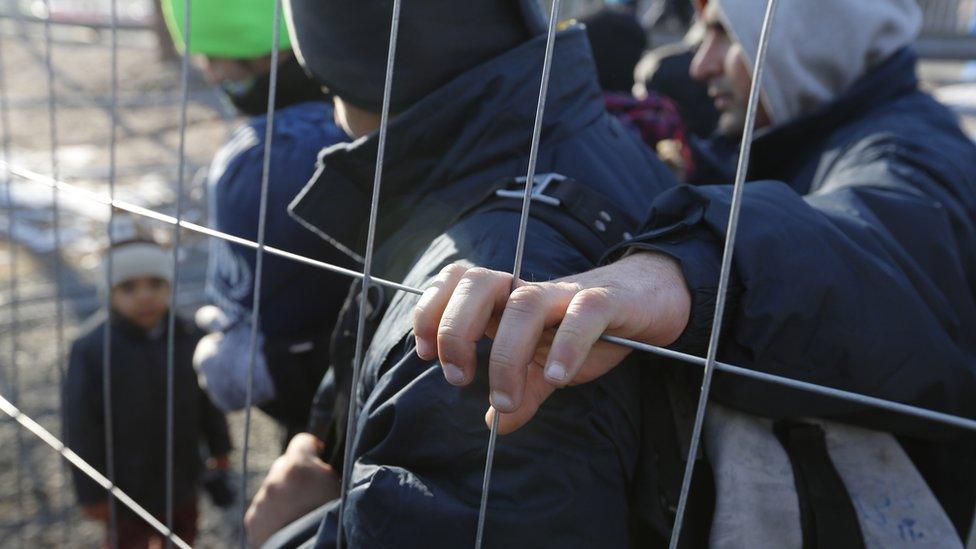Migrant crisis: Austria to slash asylum claims
- Published

Migrants waiting in Slovenia to cross into Spielfeld, Austria, on Wednesday
The Austrian government has said it will sharply reduce the number of asylum applications it accepts this year compared with 2015.
Chancellor Werner Faymann said numbers would be capped at about 37,500 in each of the next four years, compared to the 90,000 applications last year.
Serbia responded by saying it would limit migrant passage to those seeking asylum in Austria or Germany only.
The head of the European Commission has called for a summit on migration.
Jean-Claude Juncker said he was worried there would not be enough time to address the issue at the next extraordinary summit of the EU's 28 member-states, due on 18-19 February.
It is expected the UK's membership of the EU will dominate that meeting.
The EU is drawing up plans to share the "burden" of refugees more evenly among member states, scrapping the rule that means they must claim asylum in the first country they arrive in.
Cameron faces refugee 'burden' battle
There has been speculation this will shift the refugee burden from southern EU states to northern ones.
With some EU states already bringing in temporary border controls, the Commission fears the passport-free Schengen area could collapse if a solution is not worked out by March.
'Can't take them all'
Austria has become a major transit country for migrants seeking to claim asylum in Germany.
Correspondents say the influx has contributed to the popularity of the far right in Austria, sparking tensions in the governing coalition.
"We can't take in all asylum-seekers in Austria," Chancellor Faymann said after a national asylum summit in Vienna.
"We must also step up controls at our borders massively," he added.
In Belgrade, Labour Minister Aleksandar Vulin, the government's coordinator on the migrant crisis, said: "From today, based on the decision of the Austrian government... migrants will not be able to continue their travel if they have not expressed intention to seek asylum on the territory of Austria or Germany."
More than one million refugees and other migrants entered the EU clandestinely last year, mainly by sea, the majority of them seeking asylum in northern European states.
Most were from Syria, gripped by civil war, followed by Afghanistan and Iraq.
At least 31,000 have arrived by sea so far this year despite the winter weather, the UN refugee agency says.